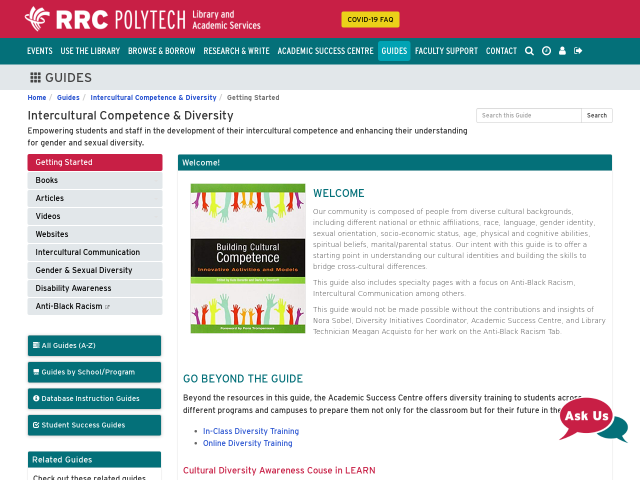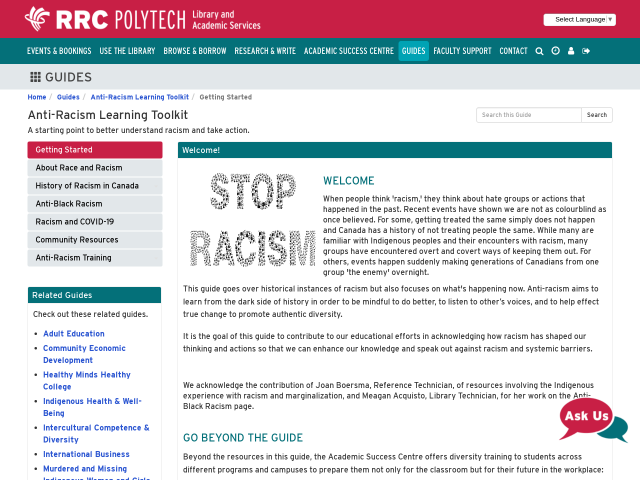Inclusion Week: “Guiding” You To Resources
The events of Inclusion Week only go until November 4, but the work continues for the remaining 51 weeks. Library collections reflect this ongoing work with efforts to keep current and provide access for those wanting to learn more after the last speaker finishes. LibGuides curate resources to help facilitate discovery on specific topics. While some Indigenous guides cover the legacy of residential schools and encountering racism in various settings, two more guides provide resources about diversity and further exploration of racism in Canada’s past and present.
Intercultural Competence & Diversity

One of the earliest guides in our collection, Intercultural Competence & Diversity, introduces viewers to experiences previously unknown but still a daily reality for groups such as the disabled or Black Canadians, to name a few.
In addition to videos and books, organizations feature mainly those in the 2SLGBTQIA+ community taking steps toward their true selves. A keyword section recommends search terms to put into OneSearch for further reading and viewing on specific topics.
The guide includes topics related to sexuality, disability issues, and the anti-black racism section.
Anti-Racism Learning Toolkit

The Anti-Black Racism page from the last guide links up with the Anti-Racism Learning Toolkit, a guide devoted to educating about racism with a Canadian focus. The History of Racism section provides websites and other resources about incidents within Canada’s History, including Japanese Internment camps, the Komagata Maru, and many others. Some resources reflect Canada’s past, and plenty of resources help understand the country’s present. Again, a keyword section will supply words to research a topic within the larger subject.
A new addition to the guide is the Anti-Racism Training Section. It’s designed to do alone or as part of a group with videos, articles, and some documentaries requiring college credentials for viewing. Reflection questions can stimulate conversation or pause for thought on the issues.
